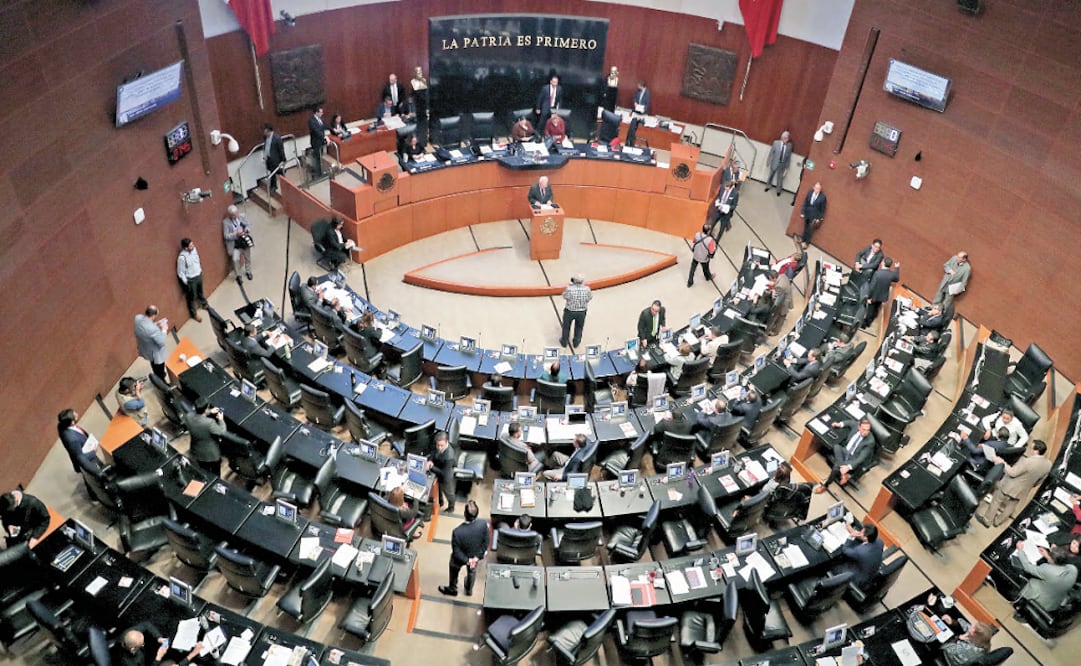Más Información

Corte ordena a Hacienda pago de 103 mdp a Televisa por “impuestos indebidos”; Batres pide no desechar el asunto

Hallan el cuerpo de Kimberly Jocelin, estudiante reportada como desaparecida; fue localizada cerca de la Autónoma de Morelos

Petróleo mexicano alcanza su mayor precio en siete meses; conflicto en Medio Oriente impulsa cotización

Imputan a Karina Barrón, secretaria de Desarrollo Humano en Monterrey por extorsión; juez le dicta prisión preventiva
On April 20, the Mexican Senate approved the Amnesty Law , a measure that would allow the release of people charged with minor drug offenses and women who had an abortion . The law was quickly approved by the Senate after it was argued that people who had been unfairly imprisoned could be released before contracting COVID-19 in prison .
Morena
, the ruling party, fully supports the new law, but the opposition, the PAN , argues the law will result in the release of “ drug traffickers and murderers .”
Morena argues the law will benefit those imprisoned for minor crimes and indigenous people whose rights were violated.
Recommended: Mexico could implement an amnesty law
According to the bill, the amnesty will apply to those who “transport and consume (marihuana) without aiming to distribute it.”
The law was later sent to the President, who will publish it and make it official.
The law, which was first proposed by President Andrés Manuel López Obrador , was backed by UN High Commissioner for Human Rights Michelle Bachelet, who recently sent a letter to the Mexican Senate, urging them to approve it.
Amnesty law
Mexico’s amnesty law will benefit people charged with petty crimes or whose trial was tainted by irregularities , such as indigenous people who were denied the right to a translator .
People charged with abortion , non-violent thefts , sedition , and the production, transportation, and carrying drugs without the intention of selling them could benefit from the new law. However, this only applies to people jailed in federal prisons .
Recommended: COVID-19: Mexico's Amnesty Law could save thousands of lives
On April 22, the President’s office and the Interior Ministry published the Amnesty Law on the Official Gazette , making it official.
With this law, the federal government will release people imprisoned for minor offenses and those who are vulnerable.
The decree comes into effect today.
However, there are special circumstances that will be considered to release the inmate. For example, those accused of crimes against health will be released if they committed the crime because they were poor or disabled , among other factors.
The E xecutive Branch now has 60 days to create a special commission that will be in charge of enforcing the amnesty law.
Those interested in being released, their lawyers , family members, and human rights groups will be able to request the special commission to apply the amnesty law. The petition must be solved in four months or less.
In 180 days, Congress must evaluate the crimes that are included in the law and decide if those charged with them are eligible to be granted a pardon .
gm
Noticias según tus intereses
[Publicidad]
[Publicidad]










